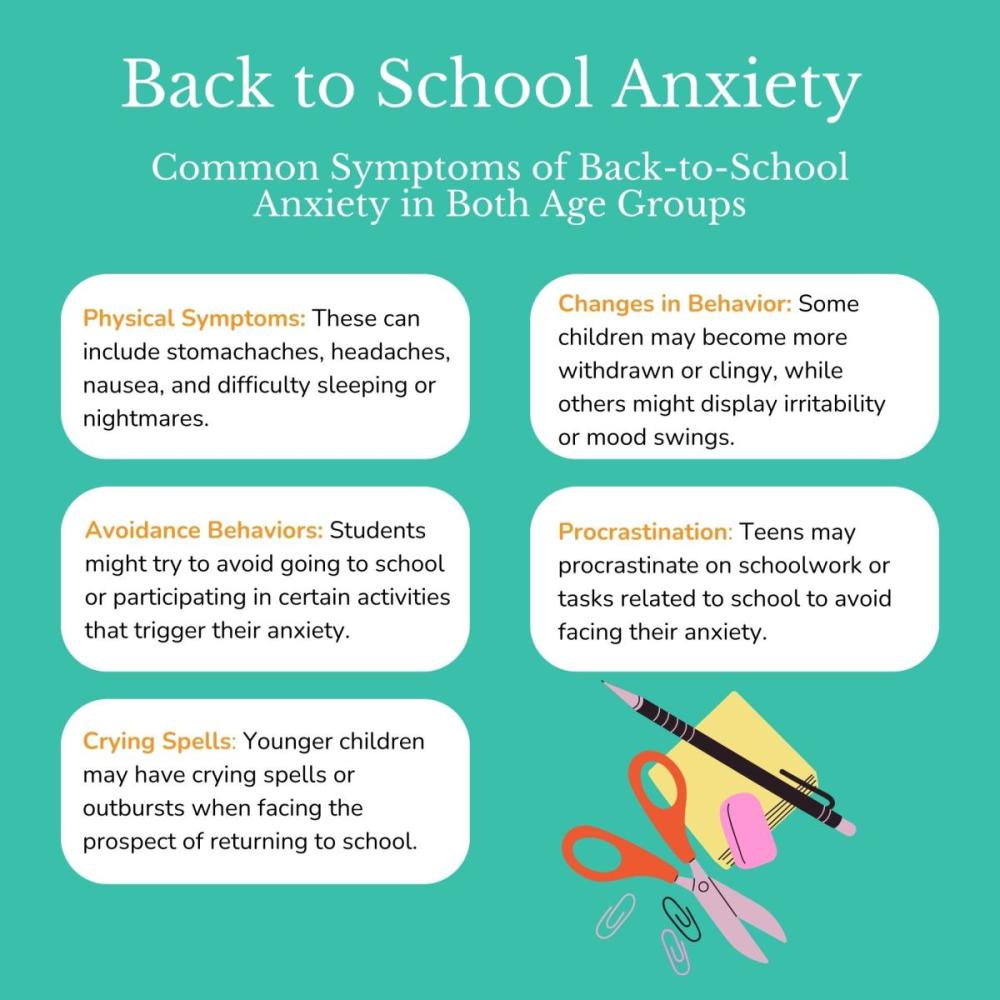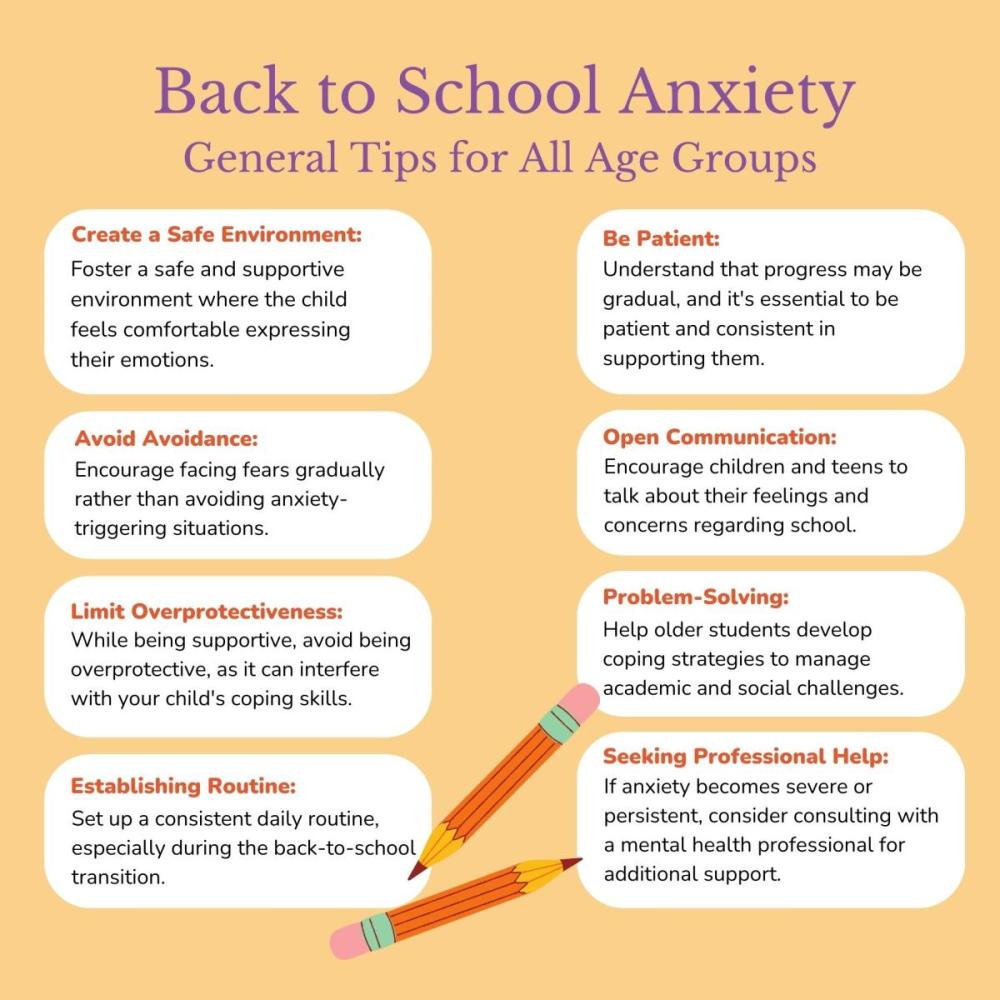Amplify Offers Back to School Anxiety Tips
The start of the school year can be a challenging time for both children and parents – going from a season of sun, fun and less structure back into more routine and discipline. Those changes alone can bring about emotional resistance, but the addition of new classes, topics to learn, and new teachers and classmates, can trigger underlying anxiety in kids.
Back-to-school anxiety can appear differently in elementary-age children and tweens/teens due to their developmental stages and individual experiences, but there are some common symptoms that appear in all ages. See the graphic below

Keep in mind that every child is different, and some may naturally be more anxious than others. Normal anxiety helps children stay safe and alert in potentially dangerous situations or motivates them to perform well in challenging situations. It only becomes a problem when it becomes overwhelming and starts significantly impacting their daily life and overall happiness.
Parents can play a crucial role in helping their children cope with anxiety. The strategies to support children with anxiety may vary depending on their age group. Here are some age-specific suggestions:
Preschool and Early Elementary (Ages 3-7):
- Reassurance: Offer comfort and reassurance when they feel anxious. Let them know it's okay to feel scared or worried sometimes.
- Routine and Predictability: Create a structured and predictable daily routine, as it can help reduce anxiety in young children.
- Teach Relaxation Techniques: Introduce simple relaxation techniques such as deep breathing or visualizations to help them calm down when they feel anxious.
- Books and Stories: Read age-appropriate books or stories that address anxiety and help them understand their feelings.
Late Elementary and Pre-Adolescence (Ages 8-12):
- Active Listening: Encourage open communication and active listening. Let them express their feelings and concerns without judgment.
- Problem-Solving Skills: Teach problem-solving skills to help them address anxiety-provoking situations.
- Encourage Healthy Habits: Promote regular physical activity, healthy eating, and sufficient sleep, as these can positively impact anxiety levels.
- Model Healthy Coping Strategies: Be a role model for managing stress and anxiety in healthy ways, like exercising instead of turning to substances or alcohol.
- Limit Media Exposure: Monitor and limit exposure to distressing news or media content that may exacerbate anxiety.
Adolescence (Ages 13-18):
- Respect Their Independence: While providing support, respect their growing independence and encourage them to take responsibility for managing their anxiety.
- Encourage Healthy Coping Mechanisms: Promote healthy coping mechanisms such as engaging in hobbies, journaling, or talking to friends.
- Normalize Anxiety: Let them know that anxiety is a common experience, and seeking help is a sign of strength.
- Avoid Pressure: Be mindful of academic or social pressures and set realistic expectations.
- Monitor Screen Time: Monitor screen time and encourage a healthy balance between online and offline activities.
Remember that everyone is different. If anxiety is severely impacting your child's life, seeking guidance from a mental health professional may be what's needed to figure out the best plan forward.

Regional Resources
NAMI CT
(860) 882-0236
Hartford Behavioral Health
(860) 548-0101
DCF Connecticut
1-800-842-1501
National Resources
NAMI (national)
1-800-950-NAMI (6264)
National Institute of Mental Health
1-866-615-6464
SAMHSA
1-800-662-HELP (4357)

